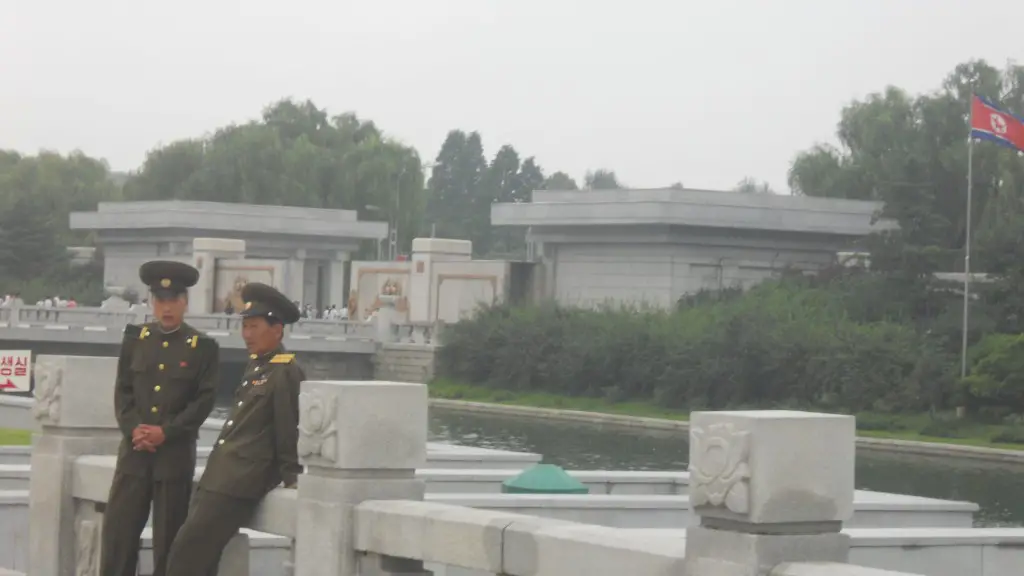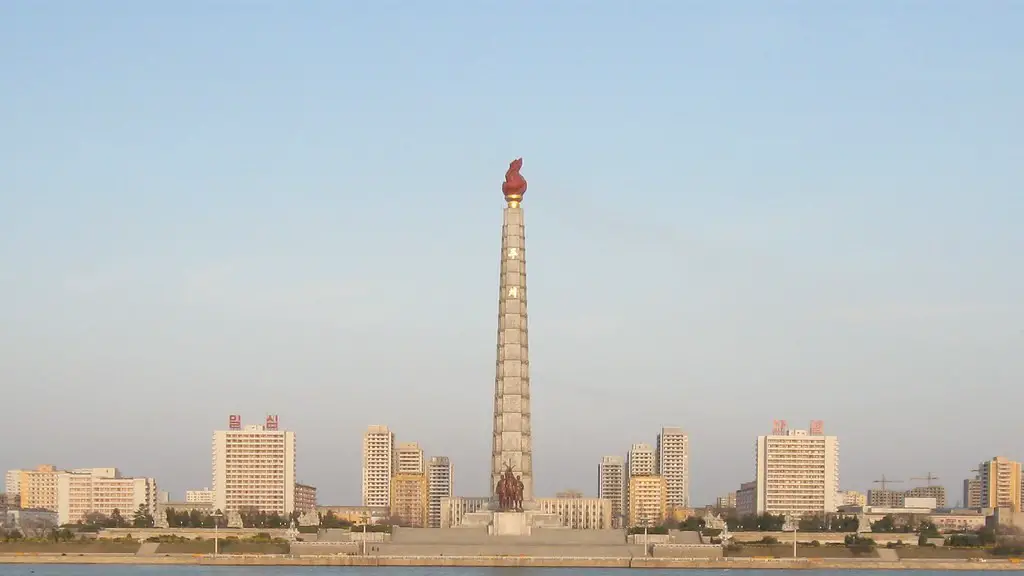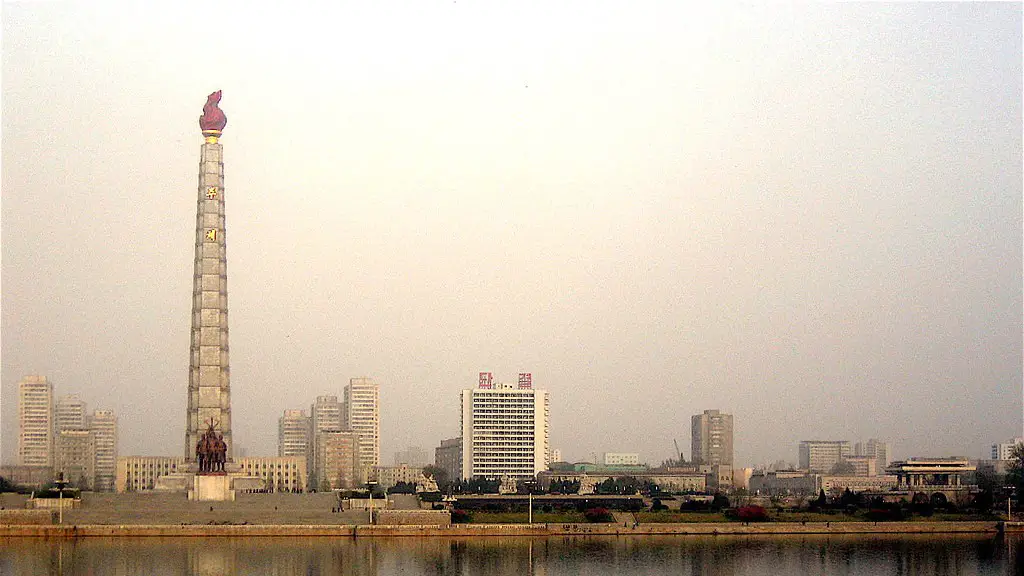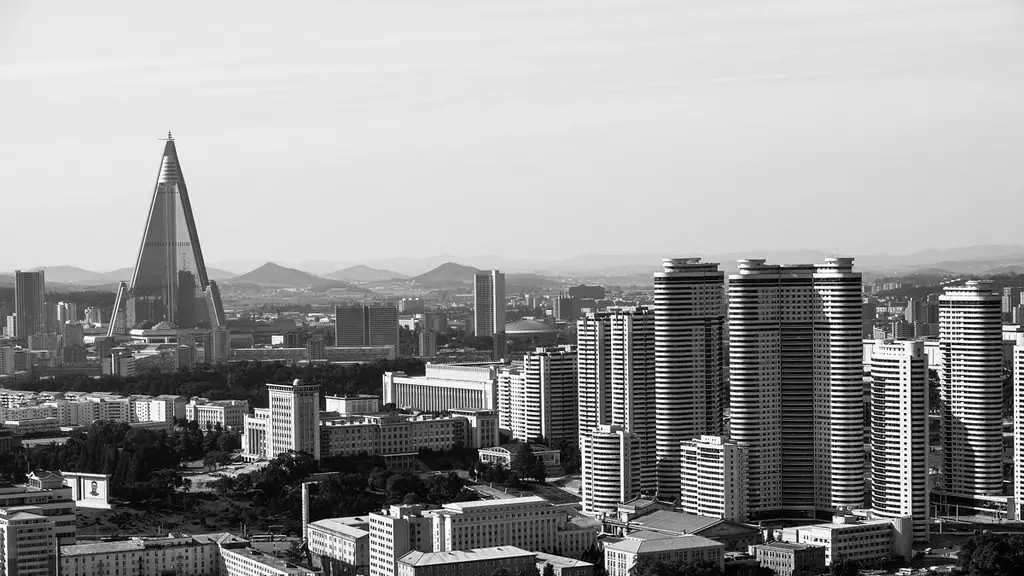Background
North Korea has long been a source of international tension. In recent years, concerns over the country’s nuclear weapons program have grown, especially after a series of tests over the last decade. These tests have led to various international condemnations of the regime and efforts to kick-start negotiations to limit the proliferation of nuclear weapons.
The most recent test occurred on September 3rd, 2017. North Korea publicly announced it had detonated an Hydrogen bomb. This was met with immediate condemnation and concerns from the leaders of the United States, China, Japan, and Russia. Scientists estimate the size and power of the blast to be in the range of 120-150 kilotons and possibly as large as 250 kilotons. It is estimated to be the most powerful North Korean nuclear test to date.
Impact of the Test
The test has raised the stakes in the region and led to further instability and heightening of tensions with other countries. Given the unstable political climate, the test may have been done to signal a show of force by the North Korean government. This is a concern given the proximity of North Korea to its neighbors. South Korea has been particularly worried, as it is in range of any weapons launched by the North.
The test has also caused an arms race in the region, with countries scrambling to develop their own weapons to counter those of North Korea. It has also led to an economic downturn, as the international community has placed further sanctions on the country and blocked trade with it. This has had a ripple effect across the region, with other countries also seeing a decline in their respective economies.
International Involvement
The international response to this test has been harsh. Countries have condemned the North Korean regime and are now considering further sanctions and tighter restrictions on the country to limit its ability to cause further chaos in the region. There is also talk of military action against the country, with some countries calling for military strikes against targets in North Korea.
The United Nations security council has responded by unanimously agreeing to tighten sanctions on the country. This includes a ban on exports of natural gas, oil and other commodities. The UN has also called on all countries to take the threat of North Korea seriously and take action to curb their proliferation of weapons.
The US has been particularly vocal in its opposition to North Korea’s actions, with US President Donald Trump calling for “maximum pressure” on the regime. Recently, the US and South Korea conducted joint military exercises as a show of strength and to emphasize the commitment of both countries to stand firm against the North.
Pyongyang’s Reactions
The North Korean regime has responded to international condemnation with defiance and claims that their weapons are necessary to defend the country from aggression. It has also used the test as an opportunity to gain diplomatic leverage in negotiations with the international community. It has also raised the possibility of direct talks with the US and South Korea.
The regime has also threatened further nuclear tests in the future. It is unclear if these threats are merely rhetoric or serious plans but it has stoked fear among its neighbors and the international community.
Expert Perspectives
Experts have varying perspectives on what the test means for the future of the region. Some argue that the test has exposed the fragility of diplomacy in the region and could lead to further tensions between the US and North Korea. Others argue that the test has strengthened the North Korean regime and could lead to more belligerent behavior.
Given the volatile nature of the situation, some experts argue that a negotiated solution is needed to avert a nuclear crisis. Others argue that a more aggressive approach is needed to deal with the North Korea issue and that sanctions are not enough.
Political Implications
The aftermath of the test has had political implications in the region. It has furthered existing political divisions between the US, South Korea, and Japan. It has also caused a diplomatic rift between China and the US, who are now at odds over how to approach the situation.
The test has also further galvanized the North Korean populace. The regime has managed to stoke nationalist sentiment and has presented itself as a victim of aggression from the US and its allies. This has further cemented the regime’s hold on power.
Analysis
The North Korean nuclear test has raised numerous risks in the region. The international community has responded with stiff sanctions, but these have not had the desired effect in curbing the regime’s ambitions. The test has also led to increased tensions between regional powers and heightened the possibility of regional conflict.
The test has also served to expose the flaws in the current international system and its inability to effectively address the North Korean threat. It has also highlighted the need for closer collaboration between the international community to develop a coordinated strategy to contain the North Korean threat.
Economic Implications
The nuclear test has had a negative impact on the North Korean economy. It has caused a slump in the country’s economy due to the tightening of sanctions from the international community and the restrictions on trade. This has been especially felt in the agricultural and fishing sectors.
The implications for the region are also concerning. The test has created a ripple effect that has negatively impacted the economies of other countries in the region, as international investors flee from the looming threat of nuclear war. It has also created uncertainty and instability, deterring foreign investment in the region.
Domestic Implications
The authorities in North Korea have used the nuclear test to tighten their grip on power within the country. The government has portrayed the test as a show of strength and defiance in the face of international condemnation. This has emboldened the regime and strengthened its position at home.
The test has also served to increase the isolation of the North Korean people. As international pressure increases, it is likely that the regime will further restrict its citizens’ access to the outside world. This has already been seen in recent years, with increased restrictions on travel, freedom of expression and access to outside media.
Long-term Implications
The consequences for the region and the international community are still yet to be seen. It remains to be seen how the international community will respond to the test, and how this will impact the prospects for negotiations with North Korea. It is also uncertain how the test will affect the US-North Korea dynamic, and if the two countries can find common ground in the future.
The test also has implications for the global nuclear non-proliferation regime. It has served as a stark reminder of of the dangers of nuclear weapons and the need to exercise caution and restraint on the part of all countries to prevent a nuclear arms race.
Conclusion
The recent North Korean nuclear test is a reminder of the fragility of international peace and the need for strong diplomatic solutions to address the challenges posed by the threat of nuclear weapons. It has also exposed the fault lines in the current international system and underscored the need for closer collaboration to address the threat of nuclear proliferation.





